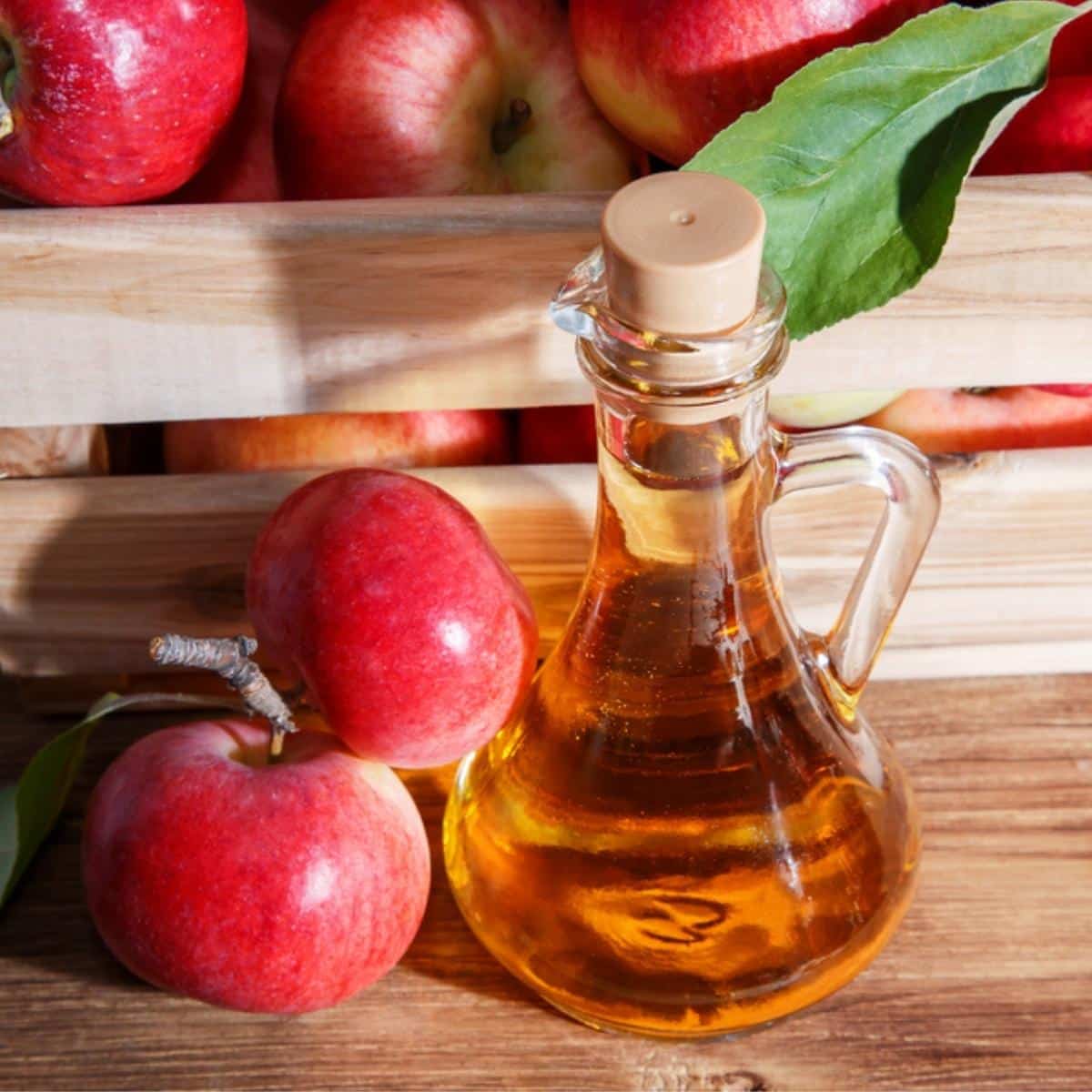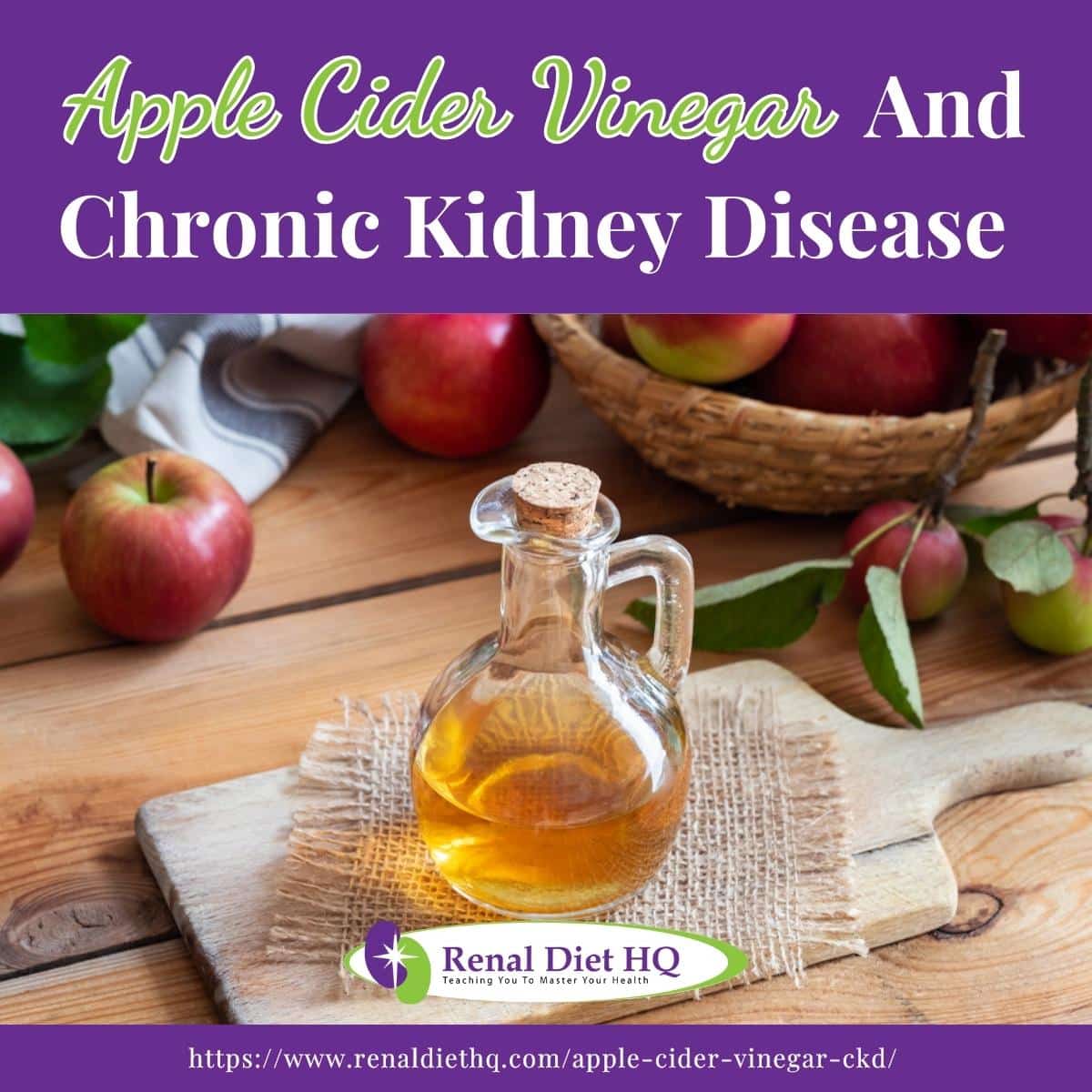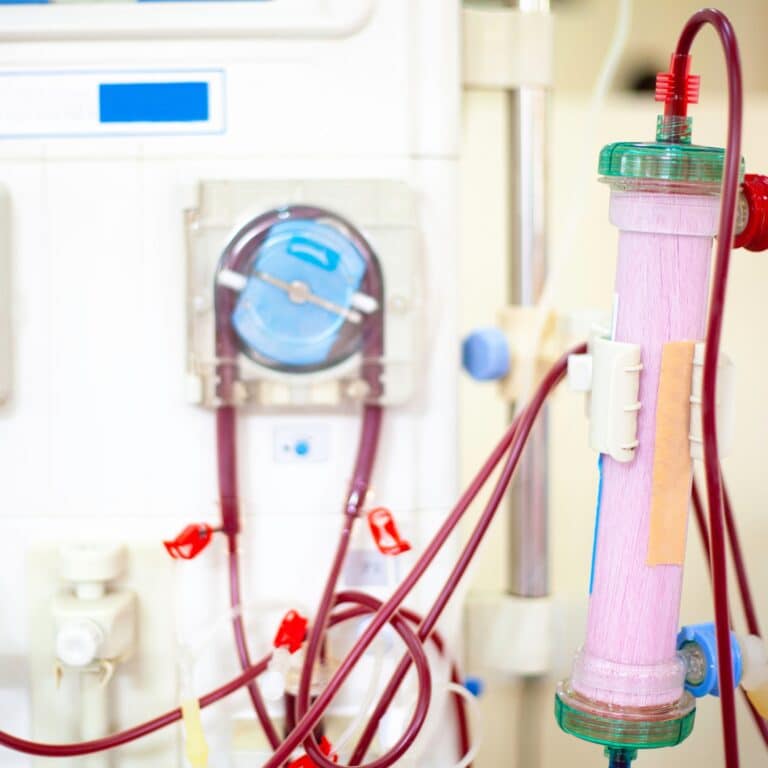Apple Cider Vinegar And CKD
Are you looking for a way to improve the health of your kidneys? Apple cider vinegar (ACV) has been used as a folk remedy for centuries, but you may be surprised to learn that it can help people with Chronic kidney disease (CKD) too. In this article, we'll dive into how apple cider vinegar can benefit those living with CKD and how to safely use it.
If you're familiar with alternative remedies, then you've likely heard about the many potential benefits of apple cider vinegar. It's said to aid digestion, reduce inflammation, lower cholesterol levels, and even treat skin conditions like acne.
But, did you know that drinking apple cider vinegar could also help improve overall kidney function? While more research is needed in this area, initial studies suggest that consuming small amounts of apple cider vinegar on a regular basis can protect against damage caused by CKD.
There are ways to make sure that incorporating ACV into your diet is safe and enjoyable. Read on to find out why apple cider vinegar might just be what your kidneys need - and discover simple tips for making the most out of its amazing benefits!
As a Registered Dietitian with over 25 years of experience in renal nutrition, I help individuals with Chronic Kidney Disease (CKD) make informed choices about ingredients like apple cider vinegar.
My recommendations are based on evidence-based guidelines to ensure CKD patients can incorporate safe, kidney-friendly foods while managing their overall health. At Renal Diet HQ, I provide expert, research-backed advice to help individuals navigate nutrition with confidence and clarity.
Jump to:
- What is Apple Cider Vinegar
- Apple Cider Vinegar For CKD
- Benefits Of Apple Cider Vinegar For Kidneys
- Acetic Acid Uses
- Potential Side Effects Of Consuming Apple Cider Vinegar
- Is Apple Cider Vinegar Good For Kidney Creatinine?
- Nutritional Content Of Apple Cider Vinegar
- How To Incorporate ACV Into A CKD Diet
- Alternatives To Apple Cider Vinegar For Kidney Health
- Interactions Between Medications And ACV
- Different Types of ACV for Renal Patients
- Long-Term Use Of ACV For CKD Patients
- Different Ways To Consume Apple Cider Vinegar
- FAQs for Apple Cider Vinegar & CKD
- Enjoy Apple Cider Vinegar With Your Renal Diet

What is Apple Cider Vinegar
Apple cider vinegar (ACV) has been used for a wide variety of health benefits. It is made from fermenting apples or apple cider. The fermentation process adds yeast. Later in the process, a bacteria is added to the liquid and creates vinegar. While apple cider vinegar has been used for preserving foods, it may also provide some health benefits.
Like many supplements, there may be some truth to the health claims, however apple cider vinegar is not a magic remedy. If you have chronic kidney disease, there are some considerations you will want to make before you try apple cider vinegar as a health supplement.
For More Recipes and Ideas --->> Get Your Free Meals and Recipes That Are Perfect for Pre-Dialysis Diets, Pre-Dialysis with Diabetes, or Dialysis Diets.
Apple Cider Vinegar For CKD
Apple Cider Vinegar is becoming increasingly popular for its potential health benefits. From skin care to weight loss, the list of possible advantages from consuming ACV is growing by the day.
Several studies suggest that consuming ACV can reduce bad cholesterol levels and improve overall cardiovascular health. Other research indicates it may help manage blood sugar levels in people with diabetes, as well as other metabolic issues such as insulin sensitivity.
Additionally, some believe that taking ACV regularly could even have anti-aging effects due to its antioxidant content.
Overall, while more research needs to be done, initial data suggests that there may indeed be many positive outcomes associated with incorporating ACV into your diet.
While this should not replace or interfere with traditional treatments prescribed by a doctor giving medical advice, adding this natural remedy could potentially provide an additional layer of support when combined with modern medicine and lifestyle changes like exercise and healthy eating choices.

Benefits Of Apple Cider Vinegar For Kidneys
Apple cider vinegar (ACV) has long been touted for its numerous health benefits. It is now being studied as a potential treatment to help individuals manage their CKD. In this article, we will explore the potential of ACV and what it could mean for those suffering from CKD.
Scientific research on ACV and kidney health shows that there may be some benefit to using it as part of a comprehensive care plan.
With proper management and lifestyle changes, many of those suffering are able to maintain quality of life despite their diagnosis. Studies suggest that incorporating ACV into your regimen may be beneficial in managing kidney function and helping you stay healthy, while living with CKD.
Ultimately, more clinical trials need to be done before any definitive conclusions about ACV’s role in treating CKD can be drawn. However, early evidence points towards its positive impact on overall kidney health.
For CKD patients, drinking diluted apple cider vinegar before meals or taking daily supplements containing ACV can help manage symptoms such as fatigue, dizziness and general malaise caused by the disease.
Additionally, its high acidity content assists in controlling uric acid buildup which can cause joint pain in those suffering from CKD.
What’s more is studies have shown that regular consumption of apple cider vinegar increases urinary citrate excretion which reduces calcium oxalate crystal formation – one of the major causes of kidney stone formation among CKD patients.
However, because of the high acidity level of ACV, it’s always best to consult with your dietitian before incorporating it into your renal diet.
Overall, there are several evidence-based benefits associated with using apple cider vinegar for managing CKD symptoms. While overconsumption should be avoided due to its acidic nature, moderate amounts of ACV taken regularly could provide relief from common symptoms related to CKD.
Acetic Acid Uses
Apple cider vinegar (ACV) is often touted for its numerous health benefits, including weight loss, improved digestion, and blood sugar control. However, when it comes to the kidneys, ACV's effects are a mixed bag, and understanding the potential side effects is crucial, especially for individuals with preexisting kidney conditions.
One of the main concerns with ACV is its high acidity. The acetic acid in ACV can irritate the kidneys, particularly if consumed in large amounts. For individuals with Chronic Kidney Disease (CKD), the kidneys are already compromised and less capable of handling additional stressors.
Excessive intake of ACV can lead to increased acid load, which the kidneys must filter. This added burden can exacerbate kidney dysfunction and may accelerate the progression of CKD. It's essential for CKD patients to consult with their healthcare provider before incorporating ACV into their diet.
Moreover, ACV's diuretic properties can influence kidney function. While diuretics help in flushing out excess fluids and toxins from the body, they can also lead to dehydration if not managed properly. For the kidneys, maintaining proper hydration is critical. Dehydration can cause the kidneys to work harder, potentially leading to kidney stones or other complications. ACV-induced dehydration is a risk factor that individuals, especially those with kidney issues, should be aware of.
Another side effect to consider is the potential impact of ACV on potassium levels. The kidneys play a crucial role in maintaining electrolyte balance, including potassium. ACV has been shown to reduce potassium levels in some individuals, which can be particularly dangerous for those with kidney disease.
Hypokalemia, or low potassium levels, can lead to muscle weakness, cramps, and even cardiac issues. For CKD patients, whose electrolyte balance is already precarious, the addition of ACV could further destabilize their condition.
It's also worth noting that ACV can interact with certain medications commonly prescribed for kidney-related issues. For instance, diuretics and medications for blood pressure control can have their effects potentiated by the diuretic properties of ACV, leading to an increased risk of side effects such as hypotension or electrolyte imbalance. This makes it imperative for individuals on such medications to seek medical advice before using ACV.
While ACV may have some health benefits, its side effects on the kidneys, particularly in vulnerable populations like those with CKD, cannot be overlooked. The key is moderation and medical supervision.
For those with healthy kidneys, occasional use of ACV is unlikely to cause significant harm, but for CKD patients, the risks can outweigh the benefits. Always dilute ACV before consumption, and avoid taking it on an empty stomach to minimize its acidic impact. Regular monitoring of kidney function and electrolyte levels is advisable for anyone considering adding ACV to their diet, especially those with preexisting kidney conditions.
Balancing the potential health benefits with the risks is essential, and individualized medical advice is paramount in making an informed decision.
Potential Side Effects Of Consuming Apple Cider Vinegar
The potential side effects of consuming apple cider vinegar for kidneys are often a cause of concern. Like any other food, it has its pros and cons when consumed in too large an amount. The acidity level present in the vinegar can harm your kidney’s delicate balance if taken improperly.
Though there is no scientific evidence that links consumption of ACV with damaging one’s kidneys' , you should still be aware of the possible risks involved.
There are concerns that the potassium levels found in apple cider vinegar may be higher than recommended amounts and this could lead to further complications for those already suffering from CKD or have difficulty maintaining balanced potassium levels.
If you have a potassium restriction, it is important to keep an eye on your intake and that means tracking how much potassium you consume in a day. You will notice that there are actually a lot of low potassium recipes.
If you have a 3000 mg/day potassium restriction, and a tablespoon of apple cider vinegar has 11mg, then you could theoretically consume 272 tablespoons of it or about 136 ounces.
The most common recommended dose of apple cider vinegar is 1 to 2 tablespoons a day, however you may want to confirm with your health care professional. Even with limited potassium restrictions, 1 to 2 tablespoons is a fairly low amount of potassium.
The key is to make sure you are not consuming more than the doctor’s recommended amount of potassium each day and to make sure you track your apple cider vinegar potassium intake.
In addition, consuming too much ACV can also lead to digestive issues such as constipation, nausea, vomiting and even dehydration due to its diuretic properties which causes increased urination.
To avoid these types of unwanted symptoms, it is important to drink plenty of water while drinking ACV and not exceed the suggested dosage guidelines set by medical professionals or nutritionists.
Ultimately speaking, the decision whether Apple Cider Vinegar is beneficial or harmful for one's kidneys depends heavily on individual health conditions - therefore consulting a healthcare provider before beginning any new dietary regimen involving ACV would be prudent in order to maximize safety and reduce risk factors associated with long term use.
Is Apple Cider Vinegar Good For Kidney Creatinine?
Apple cider vinegar (ACV) has a mixed reputation regarding its effects on kidney health, particularly concerning creatinine levels. Creatinine is a waste product filtered out of the blood by the kidneys, and elevated levels can indicate impaired kidney function.
While some proponents suggest that ACV might help improve kidney health by reducing creatinine levels, the evidence supporting this claim is not robust. ACV's potential benefits are often attributed to its acetic acid content, which may help improve various metabolic functions, including digestion and blood sugar control. However, when it comes to kidney function specifically, including its impact on creatinine levels, there is limited scientific evidence to back these claims.
Some animal studies suggest that ACV might have a role in improving renal function and lowering blood creatinine levels, but these findings have not been consistently replicated in human studies. Therefore, while ACV might offer some health benefits, its role in managing kidney health and creatinine levels remains uncertain.
While ACV may provide some general health benefits, its efficacy in reducing creatinine levels and improving kidney function lacks strong scientific support. Individuals with CKD or elevated creatinine levels should consult their healthcare provider before incorporating ACV into their diet to ensure it is safe and appropriate for their specific health needs.
Nutritional Content Of Apple Cider Vinegar
ACV is a popular ingredient in many diets, and it has been linked to numerous health benefits. But what about its nutritional content? Can apple cider vinegar be beneficial for those with CKD?
ACV contains several vitamins and minerals that can benefit CKD patients. Studies suggest that this mineral helps regulate blood pressure and electrolyte balance, both of which are important for individuals with CKD. ACV contains essential nutrients such as magnesium, calcium, and iron, and phosphorus.
These nutrients support healthy bones and muscles, help keep your kidneys functioning correctly, lower inflammation levels throughout the body, and boost overall immunity. A single tablespoon of ACV contains only 0.3 mg of potassium - an amount considered safe for most people with CKD.
Ultimately, adding small amounts of apple cider vinegar to your diet could potentially reduce symptoms associated with kidney disease by providing important vitamins and minerals necessary for optimal kidney function.
With this knowledge in mind, consider discussing potential uses of apple cider vinegar with your doctor or nutritionist before incorporating it into your meal plan.
How To Incorporate ACV Into A CKD Diet
ACV is becoming increasingly popular for its many health benefits, including those related to kidney health. For people with CKD, incorporating ACV into their diet can help reduce inflammation and improve symptoms of the condition. So how should one incorporate ACV into a CKD diet?
Firstly, it’s important to note that consuming too much ACV may be dangerous for people with advanced stages of CKD because it contains high levels of potassium which can worsen some symptoms. Thus, anyone considering adding ACV to their diet should first consult with their doctor about dosage amounts as well as any potential side effects or interactions.
Once an appropriate dose has been determined, there are several ways in which ACV can be incorporated into a CKD diet. You can use it to make a salad dressing or simply sprinkle right onto your salad. You can use it to make mayonnaise. Any sauce that uses vinegar as an ingredient can use apple cider vinegar instead.
It can also be used as a marinade, added to kidney friendly soups and stews, mixed into smoothies or juices, consumed straight from the bottle diluted in water or sprinkled over food items like popcorn. Additionally, ACV capsules are also available if drinking it isn’t preferred.
No matter what form you choose to consume apple cider vinegar in, regular use may provide significant relief from pain caused by CKD and help improve overall kidney function.
As always though, when making changes to your diet speak with your healthcare provider or renal dietician before beginning any new regimen so they can ensure that it’s safe for you.

Alternatives To Apple Cider Vinegar For Kidney Health
With the potential risks of consuming apple cider vinegar for CKD patients, it’s important to look at other options that may be better suited for kidney health.
Before exploring alternatives, it's essential to note that there is no scientific evidence that definitely proves any one product will improve your kidney health. All products should be taken with caution and in consultation with a physician or healthcare provider.
One such alternative is cranberry juice which is considered beneficial for promoting urinary tract and bladder health. It has been shown to help reduce the risk of recurrent UTIs and can also provide some relief from symptoms associated with mild CKD.
Another option is lemon water which contains citric acid and potassium that helps maintain an alkaline pH balance in your body. Additionally, studies have found drinking lemon water regularly promotes healthy kidneys by reducing inflammation levels due to its anti-inflammatory properties.
When considering what foods are good for kidney disease, consider incorporating more dark leafy greens into your diet like kale, spinach, broccoli and Swiss chard; similar to ACV, all of these contain high amounts of antioxidants which can help protect against oxidative damage caused by chronic conditions like CKD.
Also include legumes like lentils, chickpeas and beans (can you eat pinto beans on a renal diet) since they are packed with fiber, minerals and vitamins – all nutrients necessary for optimal kidney health.
Finally, herbs like turmeric can be added to meals as well because they possess natural healing properties that could offer additional protection against further harm being done to the kidneys.
In conclusion, there are several alternatives available when choosing food items or drinks that are good for maintaining overall kidney health - from cranberry juice and lemon water to dark leafy greens and certain herbs – each providing their own benefits when consumed in moderation under professional guidance if needed.
Interactions Between Medications And ACV
When considering ACV and kidney health, it's important to understand the potential interactions between medications and ACV. There are a number of medications that can interact with ACV in an adverse way including diuretics, laxatives, certain antibiotics, antacids, insulin and other diabetes drugs (ckd and diabetes medications).
Taking any of these medicines along with ACV could result in potentially dangerous side effects like increased risk of dehydration or digestive problems.
For those with CKD, there is some evidence that regular consumption of apple cider vinegar may help lower blood pressure as well as reduce inflammation associated with this condition. However, further research needs to be done before definitive conclusions can be made about its efficacy for treating CKD symptoms.
Additionally, taking too much ACV can lead to low potassium levels which can worsen existing symptoms of CKD such as fatigue and weakness.
It’s always best practice to talk to your doctor before incorporating ACV into your diet if you have any underlying medical conditions - especially if you take medication regularly. Your doctor will be able to advise whether the benefits outweigh any risks posed by the interaction between your medications and ACV intake.
That said, moderate amounts of ACV consumed on a daily basis has been found to be safe when combined with prescription medications – but only after talking with your healthcare provider first.
Different Types of ACV for Renal Patients
First things first: Can apple cider vinegar hurt your kidneys? The short answer is no; ACV does not harm healthy kidneys. However, if used improperly or in excess, it could cause damage to already damaged kidneys.
Also, excessive consumption of ACV can lead to dehydration, as well as other health risks associated with electrolyte imbalances. It's best to consult a doctor before taking any kind of supplement or remedy that could potentially affect your kidney health.
ACV is also available as gummies in addition to its standard liquid form. Generally speaking, there are few side effects associated with consuming ACV gummies – however, like all supplements, they should always be taken according to label instructions and after consulting a qualified healthcare professional if needed.
Ultimately though, the safest way to get the most out of the therapeutic properties found in apple cider vinegar is through its liquid form which can be added directly into water or juice before being consumed daily.
It’s clear that there are both pros and cons related to utilizing apple cider vinegar for CKD patients needing additional renal support - yet ultimately it comes down to individual choice and circumstance when trying to determine which type of ACV may be right for them moving forward.
With careful consideration and advice from a doctor who specializes in kidneys where appropriate, adding ACV into one's lifestyle regimen may bring much-needed help in managing symptoms associated with renal issues.
Long-Term Use Of ACV For CKD Patients
The long-term use of apple cider vinegar (ACV) for patients with CKD is a subject that has been studied extensively. While ACV can be used to help reduce inflammation and provide other health benefits, in excess amounts it may not be the best choice for CKD patients due to its high potassium content.
Potassium is an essential mineral found in many fruits and vegetables, including tomatoes, potatoes, oranges, bananas and avocados. Eating too much of these foods can cause hyperkalemia – abnormally high levels of potassium in the blood which can lead to heart problems. Is apple cider vinegar good for your kidneys?
Generally speaking, yes; however it's important to keep an eye on how much potassium you're consuming if using ACV as part of your treatment regimen. ACV kidney disease treatments usually involve diluting one tablespoon of ACV in eight ounces of water per day and drinking this mixture throughout the day while monitoring blood tests and electrolyte levels regularly.
It’s also important to note that there are different types of ACV available - some have added minerals such as magnesium and phosphorus while others do not contain additional ingredients at all.
So, it’s always wise to double-check nutrition labels when purchasing either type of product. Additionally, research suggests that organic unfiltered brands tend to offer more health benefits than those made from conventionally grown apples, although they may cost more money up front.
Different Ways To Consume Apple Cider Vinegar
ACV is like an old friend: always there when you need it. It's a versatile ingredient with many different ways to be consumed, each offering its own unique benefits.
One way to consume apple cider vinegar is in the form of a shot, often referred to as "ACV shots." This method requires a tablespoon of ACV, mixed with two teaspoons of honey and diluted in one cup of water.
The mixture can then be taken all at once for maximum effect. Taking this shot daily provides numerous health benefits including improved digestion, reduced inflammation, and increased energy levels.
Another option for consuming ACV is through adding it to your cooking routine. A few tablespoons can go a long way towards enhancing flavor while also providing essential nutrients such as vitamin c and iron.
For example, ACV makes a great marinade for meats or dressings for salads - just make sure not to overdo it!
Finally, drinking apple cider vinegar throughout the day in moderation can ensure that you get optimal nutrition from this potent source of vitamins and minerals.
In short, there are countless ways to enjoy the power of apple cider vinegar without sacrificing flavor or health benefits. Whether you choose to shoot it down in one gulp or use it in recipes throughout the week, make sure you take advantage of this healthy superfood!
FAQs for Apple Cider Vinegar & CKD
It is important to consider the safety of any product or medication when pregnant, especially if you have CKD. Is apple cider vinegar safe for pregnant women with CKD? The answer may not be as straightforward as it seems.
There are several factors that need to be taken into consideration:
1. Potential interactions between ACV and other medications used for CKD treatment;
2. Possible side effects associated with consuming large amounts of ACV during pregnancy;
3. Whether there is a risk of increased acidity in the body due to long-term use of ACV; and
4. Any potential risks posed by contaminated products.
Before taking on such an endeavor, consulting your doctor is essential in order to ensure the best course of action based upon individual health needs.
They can provide tailored advice regarding whether consuming ACV while pregnant is suitable given one’s unique medical history and current treatments.
Additionally, they can offer guidance on how much and what type of ACV should be consumed safely, alongside considering all other medications being taken at the time.
When supplementing with ACV, it's important to do so responsibly and within recommended guidelines from healthcare professionals in order to reduce any possible risks or complications that could arise from its consumption during pregnancy - particularly for those who suffer from a chronic illness such as CKD.
ACV has been a popular home remedy for centuries, used to treat everything from skin conditions, digestive issues, and even kidney failure. Could ACV be the miracle cure we've all been looking for? Many believe yes - however, as with any natural remedy, it is important to understand the risks associated before using it.
Coincidentally, many of us have heard stories of people being cured by drinking ACV on an empty stomach every morning. But what are the scientific facts behind this claim? Does consuming ACV actually help individuals suffering from CKD? After researching various studies conducted in recent years:
*It appears that acetic acid-rich foods may improve renal function in those with mild CKD;
*Animal models suggest that ACV can reduce blood creatinine levels which is a marker of better renal function; and
*Studies indicate that taking daily doses of ACV could potentially lower proteinuria levels significantly.
Though these findings seem promising, more research needs to be done to determine if there is indeed a link between consumption of apple cider vinegar and improved kidney health.
That said, some experts believe that drinking one or two teaspoons of organic unfiltered ACV mixed with water each day might provide certain benefits to those dealing with CKD symptoms such as fatigue, swelling, or difficulty urinating.
However, due to potential side effects like high acidity levels and increased risk of bone loss, anyone considering using this method should consult their doctor first.
So, while current evidence indicates there may be some positive impacts on treating CKD when adding apple cider vinegar into your diet plan –further studies need to take place before drawing final conclusions about its effectiveness as a treatment option.
We all know that adding a bit of extra nutrition to our diets can be beneficial, but is it safe to consume apple cider vinegar every day? Many people are wondering if there are any potential risks or health concerns associated with this popular ingredient.
With its numerous purported benefits and the increasing amount of scientific data available on its effects, let’s take a look at what science has to say about consuming ACV every day:
1. **Potential Side Effects** - Apple Cider Vinegar is an acidic substance, so drinking too much of it could potentially lead to side-effects such as throat irritation, tooth erosion, and stomach upset. It may also interact with certain medications in undesirable ways. Here are commonly prescribed medications for CKD.
2. **Benefits** - On the other hand, when consumed in moderation (no more than one tablespoon per day) ACV has been linked with several possible health benefits including weight loss, lower cholesterol levels, improved digestion, and better blood sugar control.
3. **Overall Safety Rating** - Despite some potential side-effects and interactions with certain drugs, overall apple cider vinegar appears to be relatively safe for most healthy individuals when used responsibly as part of a balanced diet.
However, it's always best to consult your doctor before making any dietary changes or taking nutritional supplements of any kind.
Given these facts about ACV safety rating we can conclude that consuming moderate amounts of apple cider vinegar should not cause any major issues for most healthy adults; however it's important to talk to your healthcare provider first before making any drastic changes to your diet or lifestyle routine!
Enjoy Apple Cider Vinegar With Your Renal Diet
Apple cider vinegar is a popular remedy for many ailments and can be beneficial to those with CKD. However, it should not be used as an alternative to medication prescribed by your doctor.
Consuming ACV every day might provide some health benefits, but its effectiveness in treating CKD has yet to be fully proven.
It's important to remember that pregnant women with CKD need special care when consuming anything new or unfamiliar. Before taking any action regarding their diet or treatment plan, they should consult with their physician first.
That being said, there are several research-backed reasons why people may want to consider incorporating ACV into their diet if they have CKD: one study found that drinking ACV daily helped reduce creatinine levels in the bloodstream, which means that it may improve renal function.
Ultimately, you should always consult your dietitian or doctor to figure out what would work best for your body before making any changes in your routine.














Very good Information! So you're saying that ACV has too much potassium - what about a Banana???????? Is that bad for our kidneys also?